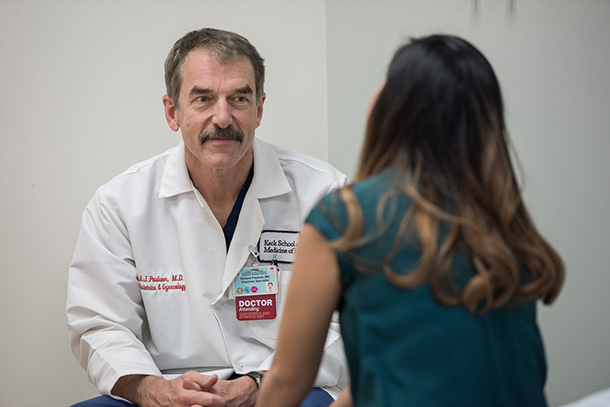If you’re not going to complete your family by age 35, it’s time to freeze your eggs, according to Richard J. Paulson, MD, professor of obstetrics and gynecology at the Keck School of Medicine of USC and director of USC Fertility.
Egg freezing offers a shot at pausing the biological clock for patients who wish to preserve their fertility into their late forties. Even though eggs can be frozen for much longer than this, pregnancy after age 50 carries increasingly significant obstetric risks, such as delivering low birth weight or premature babies.
During egg freezing, patients can expect to take heavy doses of hormones, which hyperstimulate their ovaries to release multiple eggs — the same approach used for IVF. Then, doctors gather the eggs and put them on ice for long-term storage.
At USC Fertility, the first cycle costs $10,000. If the first cycle produces too few eggs, women can elect to undergo subsequent cycles for $5,000 each. Thawing the eggs and undergoing IVF costs an additional $5,000 per pregnancy attempt. Very few insurance plans cover the costs, unless the patient is preserving her fertility due to chemotherapy.
Still, more than 150 women have elected to pursue egg freezing at USC Fertility. So far, 21 have returned to retrieve their eggs, and 15 of these — or 65 percent — have delivered babies.
“It’s very, very gratifying,” Paulson said, “to have people form families and complete their life’s dream.”
Listen to the audio story below or by clicking on this link.
— Cristy Lytal


